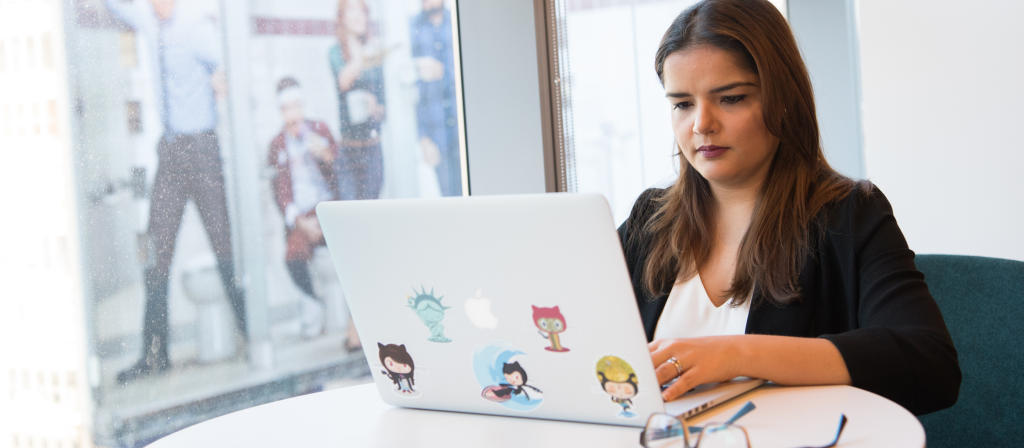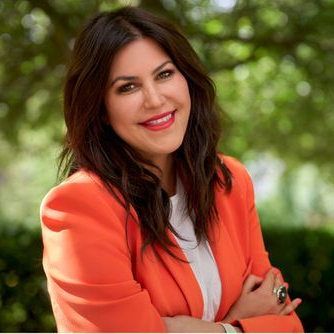A global crisis such as Covid-19 can be very unsettling to people at a core level, rocking the confidence they have in themselves, their communities, and the government.
The pandemic has shaken the normally stable ground that we stand on, taking our world from the safe and secure place we know to a constantly changing, unfamiliar and unpredictable one.
This loss of safety can cause a huge range of emotions to come up, such as worry, fear, and frustration, testing people’s resilience and pushing many to re-evaluate their life choices.
We know from our conversations that many people are looking at the last few months and wishing they had done things differently. Kicking themselves for not picking up a new job, routine or money-saving scheme before lockdown started. And, since it started, so many people have had good intentions of learning a new skill or picking up a hobby during lockdown. However, the reality it seems, has been a bit different. When restrictions and lockdowns were first put in place, countries shut down quickly and our worlds changed overnight. Now, as the weeks progress and we’ve gotten used to this ‘new normal’, it’s becoming more difficult for people to stay motivated and productive.

But very rarely do we have the opportunity to properly reset, or take time to really consider what we want to be like now and in the future. As hard as lockdown has been, it has given us the unique opportunity to take a breath and think, without the noise and distractions of daily life. Taking that time to do a self audit is extremely valuable for growth and development. Helping pinpoint what matters most to you (your values) and where you want to go in your life (your purpose), in order to thrive.
PUSH Coach Shereen Hoban, personal development coach and facilitator, spoke about the importance of goal setting if we’re keen to create change in our lives.
“When goal setting, it’s helpful to think about your plans in a tangible way. What are you working for? What result is going to make you feel happy, fulfilled or exhilarated? Once you’ve identified your goal – one that’s personal to you, team it with some serious visualisation. Imagine yourself achieving this thing.
”Three in five (58%) people said they are finding it harder to stay positive about the future, and 56% are finding it harder to stay positive day-to-day.”
This exercise, widely used by sports-people, can have a truly powerful effect on your mindset, enabling you to work in a more focused way so you can go forward to succeed. Knowing what you want and what you’re working towards means you’re one massive step closer to getting it. If your goal is to simply rest, regroup and spend quality time with your family right now, then just be intentional with it. Enjoy this time and don’t feel guilty for doing what’s right for you.”
Our mindset has a huge impact on our motivation and is key in the success or failure of a task, project or goal. Research suggests that having a growth mindset can help us overcome challenges, due to the belief that skills and abilities can be developed through dedication and hard work. However, as the lockdown continues, it’s becoming harder to stay positive about the future for many. In the UK, three in five (58%) people said they are finding it harder to stay positive about the future, and 56% are finding it harder to stay positive day-to-day.
”The growth mindset allows people to value what they’re doing regardless of the outcome.”
American Psychologist Carol Dweck is an expert on growth mindset. In her book ‘Mindset: The New Psychology of Mindset’, she spoke on different mindsets, commenting “In the fixed mindset, everything is about the outcome. If you fail—or if you’re not the best—it’s all been wasted. The growth mindset allows people to value what they’re doing regardless of the outcome. They’re tackling problems, charting new courses, working on important issues. Maybe they haven’t found the cure for cancer, but the search was deeply meaningful.” In challenging times it is especially important to try and have a growth mindset, which will help foster creativity and build resilience.
But let’s be honest, most people aren’t going to get up every morning at 5am to do a home workout, before cooking a healthy breakfast and starting work at 9am – and that’s without kids in the mix. And it’s ok to spend time watching TV or scrolling on your phone, allowing yourself to just do nothing. However, it is also important to use this time to try new activities and self-care strategies.

Starting to build a habit or process around these new activities is almost as important, if not more so, than the actual outcome of the activity. Focusing on small things that we can control, while building healthy habits, can have a transformative effect on mental health. This learning gives individuals something that is fully in their control, unlike the current socio-economic climate.
Brad Stulberg, author of the book ‘Peak Performance’ and expert on personal and professional development, has developed an equation for achieving growth in any area of your life. Over his years of working as a consultant and business coach, he realised that the key drivers for growth are Stress and Rest.
We know that stress is most commonly talked about in a negative light. However, Professor Kelly McGonigal explained in her book ‘The Upside of Stress’, that stress can actually be good for us to a certain extent. It is only when that stress becomes too much for too long, that it starts to have a negative impact on our health and wellbeing.
As humans, we need to feel a certain amount of stress in order to challenge ourselves to do better or learn new things. But we also need to take the time to rest our bodies or minds to allow ourselves to recharge. Brad’s equation for growth is simple, highlighting the importance of both being challenged and resting in order to do our best.

So, maybe now is the time to use this ‘stress’ as the opportunity to grow, allowing ourselves the time and space to try new things, or focus on areas you may have neglected. This could also be a time to create new routines and structures around your work, school or personal life. To figure out the best way of working for you, and how to top up that resilience bank so you don’t end up overstretched or burnt out.
Most of all though, it’s important to not become your own worst critic. Beating yourself up over not learning a new language, or doing that workout isn’t helpful and can even be detrimental to your mental health. During this time we should be celebrating even the small wins we have, building that positive growth mindset bit by bit. Because, afterall, the most important outcome is our individual happiness and that should be the focus of every single one of us.
Helpful Resources
- The Samaritans: Support & Info during Coronavirus
- Public Health England: Guidance for the Public on Mental Health and Wellbeing
Up to date Info on Corona

more articles by Cate Murden


